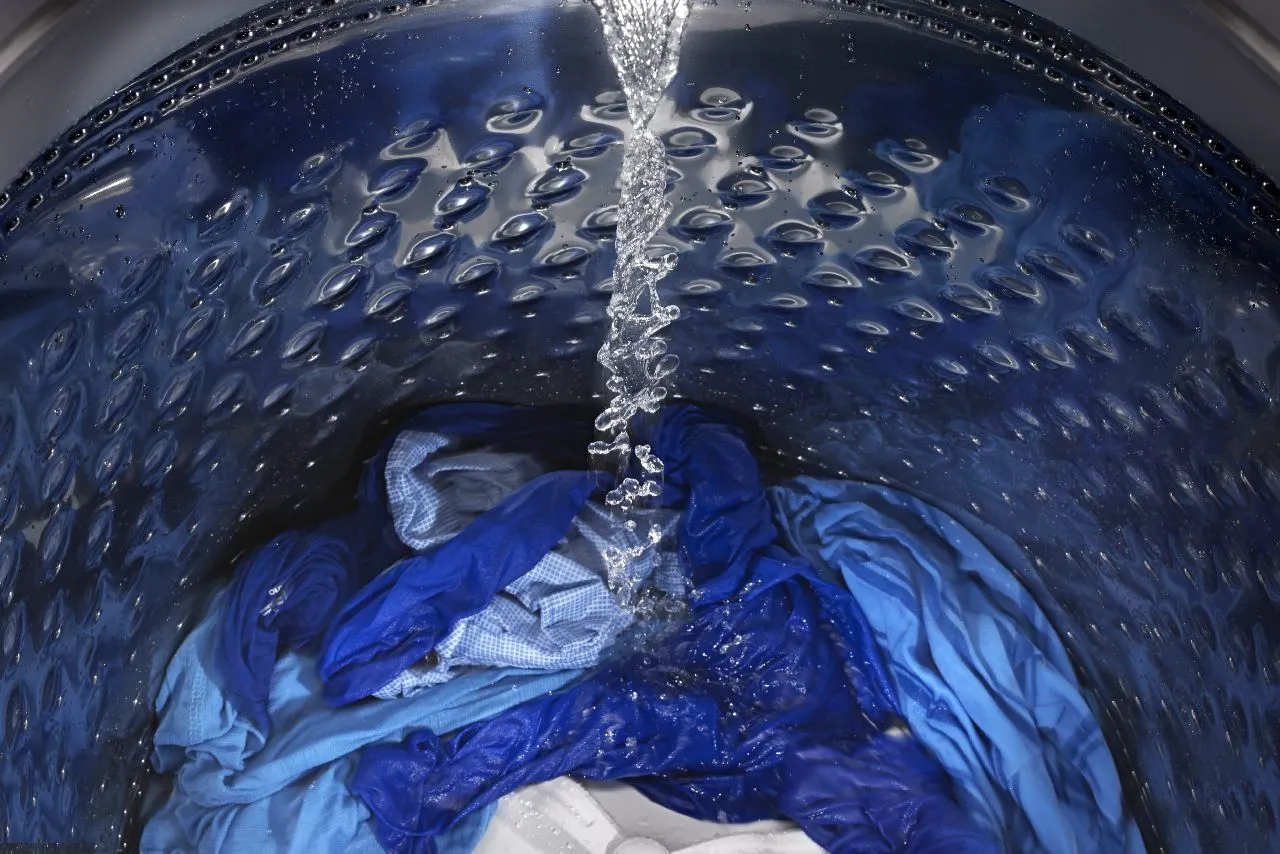It is now becoming a common problem in many households that the washing machine doesn’t have any cold water. This can be very frustrating, especially when you need to do a load of laundry and there is no other way to get the clothes clean. In this article, we will explore some of the possible reasons why no cold water in washing machine could be happening and what you can do about it.
Most people are unaware that washing machines have a cold water setting. In fact, many people don’t even know what the cold water setting is for. The cold water setting on your washing machine is used to rinse your clothes after they’ve been washed. When you use the cold water setting on your washing machine, it saves you money on your energy bill because the washer doesn’t have to use as much energy to heat up the water.
Table of Contents
No Cold Water In Washing Machine: Common Causes
Did you know that almost 60% of all washers break down because of no cold water in washing machine? In this article, we will explore some of the most common causes for this problem. We will also provide some tips on how to prevent it from happening in the first place.
Improper installation
One of the most common causes for no cold water in washing machine is improper installation. If your washer isn’t installed properly, it can easily result in a lack of cold water. Make sure that your washer is level and that it is securely attached to the wall or floor. You should also check your hoses to make sure they are properly connected and not kinked or twisted.
Faulty water valve
A faulty water valve can also cause a lack of cold water in washing machine. If the valve is not opening completely, it can restrict the flow of cold water into the washer tub. To test the valve, open up the faucet and see if any cold water comes out. If there is no cold water coming out, then you likely have a faulty valve and will need to replace it.
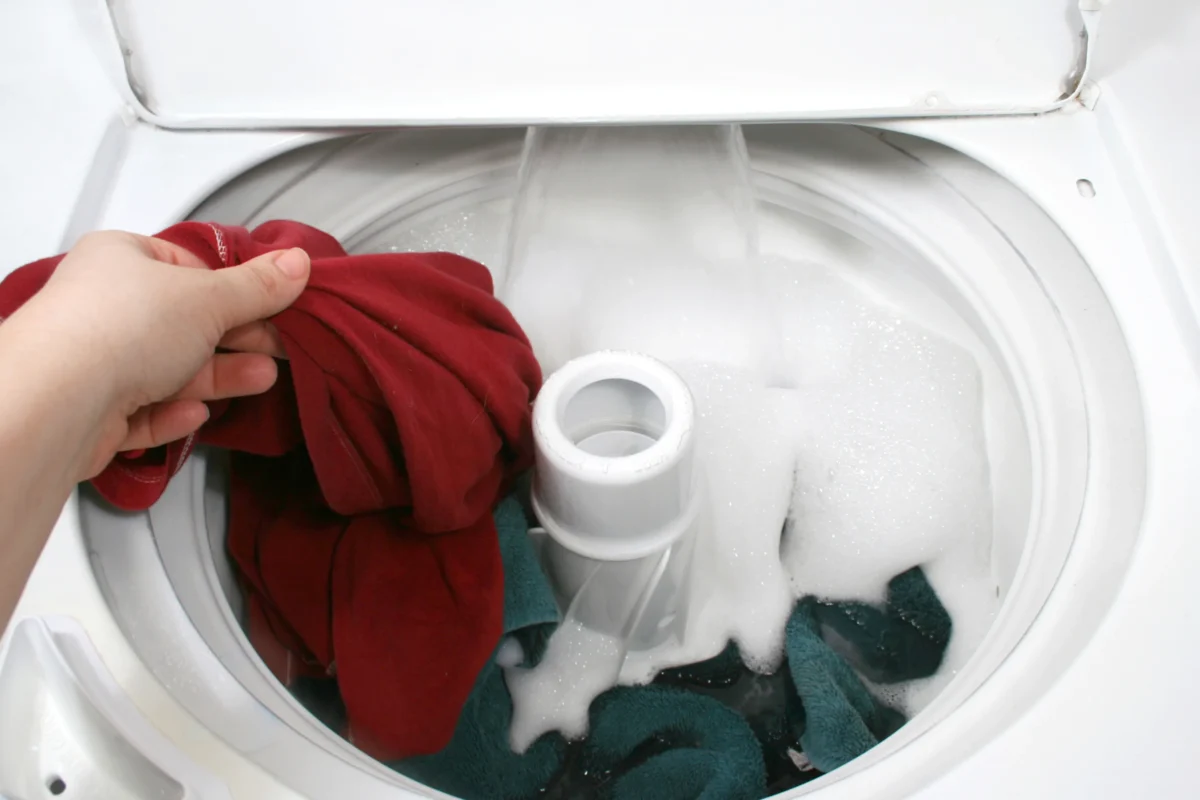
Worn out washer tub
Another common cause for no cold water in washing machine is a worn out washer tub. Over time, the rubber seals in the tub can break down and allow water to leak out. This can eventually lead to a lack of cold water in the washer. To prevent this from happening, it’s important to regularly inspect your washer tub for any signs of wear and tear.
Clogged hose
A clogged hose can also cause a lack of cold water in washing machine. If the hose that supplies cold water to the washer is blocked, it can restrict the flow of water and eventually cause the washer to run out of cold water. To prevent this from happening, it’s important to regularly check your hoses for any signs of blockages.
Clogged filter
Another common cause for no cold water in washing machine is a clogged filter. The filter is located near the water inlet valve and can easily become clogged with dirt and debris. To clean the filter, simply remove it and rinse it off with some water.
If you have a front-loading washer, you may also have a lint trap that needs to be cleaned. The lint trap is located just above the door and can become clogged with lint and other debris. To clean the lint trap, simply remove it and rinse it off with some water.
Worn out pump
Another common cause of no cold water in washing machine is a worn out pump. The pump is responsible for circulating the water through the washer tub. Over time, the pump can become worn out and will no longer be able to circulate the water properly. If you think your pump may be worn out, you can try replacing it with a new one.
Faulty thermostat
A faulty thermostat can also cause a lack of cold water in washing machine. The thermostat is responsible for regulating the temperature of the water. If the thermostat is not working properly, it can cause the water to be too hot or too cold. To test the thermostat, simply turn on the washer and see if the water is the correct temperature. If it is not, then you will need to replace the thermostat.
If you’re experiencing no cold water in washing machine, there are a few possible causes. Improper installation, a faulty water valve, or a worn out washer tub can all lead to this problem. By taking some preventive measures and troubleshooting the issue, you can quickly get your washer back up and running.
These are just some of the most common causes for no cold water in washing machine. If you are having this problem, be sure to check these things first. If you are still having problems, then you may need to call a professional for help.
No Cold Water In Washing Machine: How To Fix
Few things are more frustrating than discovering that your washing machine isn’t working. And when you find out the reason – there’s no cold water coming out – it can be even more maddening. You might not know what to do, where to turn, or how to fix the problem. But don’t worry; we’re here to help. In this article, we will walk you through some simple steps to take in order to get your washing machine up and running again, without any cold water.
The first thing you should do is check your water temperature settings on your washing machine. Sometimes people accidentally set their machines to “cold wash†when they actually want it set on “warm wash†or vice versa. So before anything else, make sure that your machine is set to the correct temperature for the type of clothes you are trying to wash.
If your water temperature settings are correct and you’re still not getting any cold water, the next step is to check your home’s water supply. If there is no water coming into your home at all, or if the water pressure is very low, that could be the reason why your washing machine isn’t getting any cold water. In this case, you will need to contact your local water company in order to resolve the issue.
If there does not seem to be any problem with your home’s water supply, the next step is to check the hoses that connect your washing machine to the water supply. Make sure that these hoses are securely connected and there are no leaks. If there are any leaks, you will need to replace the hoses.
If the hoses are in good condition and there are no leaks, the next thing to check is the water valve that supplies water to your washing machine. This valve is usually located behind the washing machine. Make sure that the valve is fully open so that water can flow freely into your machine.
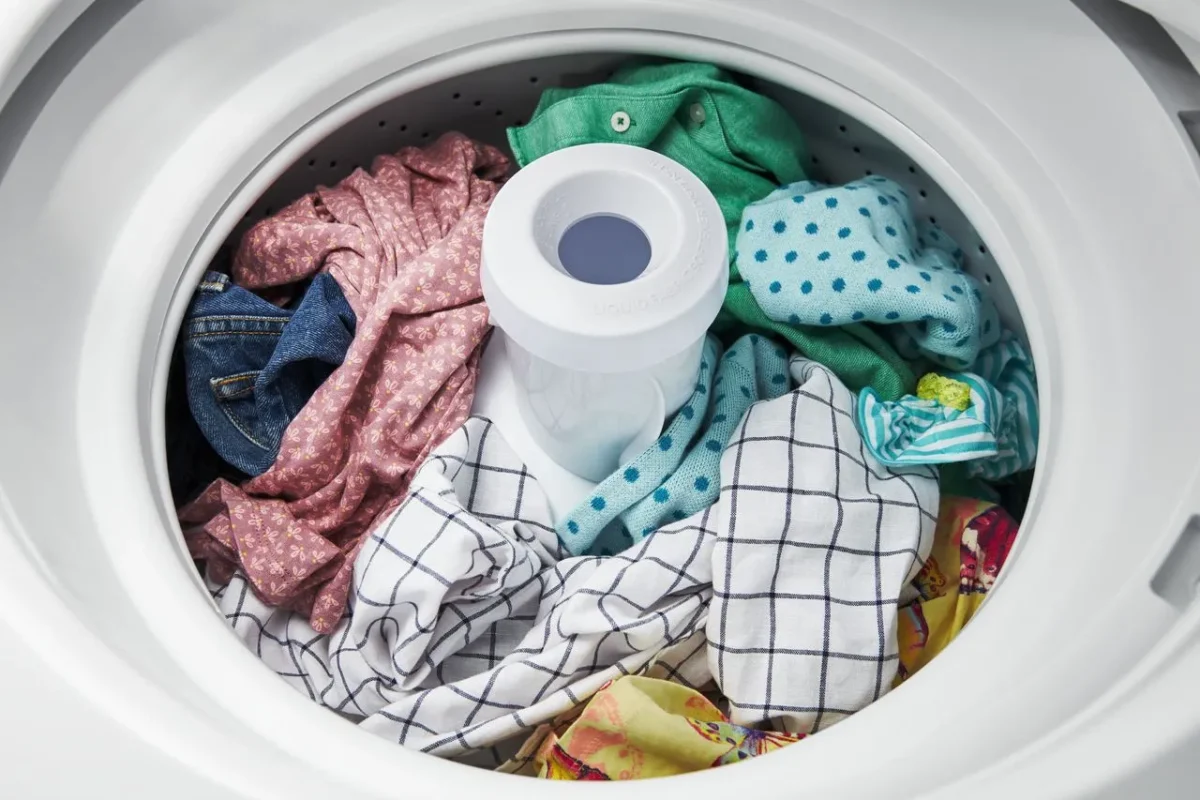
If you have checked all of these things and you are still not getting any cold water in your washing machine, the problem may be with the actual washing machine itself. In this case, you will need to contact a qualified appliance repair person to come and take a look at your machine.
If you have checked the temperature setting and it is correct but there is still no cold water coming out of the faucet, then there may be a bigger problem. The next thing you can do is check your water heater to see if it is set to the correct temperature. The recommended setting for most water heaters is between 120 and 140 degrees Fahrenheit. If your water heater is set below this range, it could be the reason why there is no cold water coming out of your washing machine.
If you have checked the water heater and it is set to the correct temperature, then the next thing you can do is check the inlet hoses on your washing machine. There are usually two of them – one for hot water and one for cold water. Make sure that both hoses are securely connected to the correct faucets. If they are not, then that could be why there is no cold water coming out of your washing machine.
If you have checked the temperature settings on both your washing machine and your water heater and they seem to be fine, then there might be a problem with the plumbing in your home. A blocked pipe or a leak in a hose could be preventing the cold water from reaching your washing machine. If you think this might be the case, it’s best to call a professional plumber to take a look.
In some cases, the problem might not be with your home’s plumbing at all. If you live in an apartment or a condo, the issue could be with the complex’s water lines. In this case, you will need to contact your building manager or superintendent to see if they can help resolve the problem.
How To Properly Wash Clothes Without Cold Water
There are many ways to wash clothes without cold water. In fact, you can use just about any temperature of water to get your clothes clean – as long as you know how to do it properly.
One way to wash clothes without cold water is by using the sun. All you need is a sunny day and some clotheslines or a washing machine with a drying function. The sun will naturally heat the water and help to get your clothes clean.
Another way to wash clothes without cold water is by using boiling hot water. This method is best for whites and colors that bleed, as the high temperature will kill any bacteria or dirt on the fabric. Just be careful not to use boiling hot water on delicate fabrics, as it could damage them.
If you don’t want to use hot water, you can try using vinegar. Vinegar is a natural disinfectant and will help to remove any stains or dirt on your clothes. Just add a cup of vinegar to your wash cycle – along with your regular laundry detergent – and your clothes should come out clean and fresh.
If you don’t want to use hot water, you can also wash your clothes in lukewarm water. This is the best temperature for most fabrics, as it won’t damage them but will still get them clean. Just be sure to use a mild detergent and to avoid bleaching your clothes if they are delicate.
You can also hand wash your clothes without using any water at all. This is best for delicate fabrics, as there is no risk of damaging them. All you need is a gentle cleanser and a towel. Simply rub the garment with the cleanser and then blot it with the towel until it is dry.
A third way to wash clothes without cold water is by using lukewarm or room-temperature water. This method is best for people who don’t have access to a sunny day or a washing machine with a drying function, as it doesn’t require any special equipment or ingredients. All you need is some detergent and enough time for the clothes to soak in the bathtub or sink.
Finally, you can also wash clothes without cold water by using lemon juice. Lemon juice is a natural bleaching agent and can be used to brighten up whites or remove stains from colored clothing. Simply add half a cup of lemon juice to your washing machine before starting the cycle.
No matter which method you choose, it’s important to remember that pre-treating your clothes is always a good idea. This means spraying or rubbing stains with a little bit of water and detergent before you wash them. By pre-treating your clothes, you’ll be more likely to get them clean – no matter what temperature of water you use.
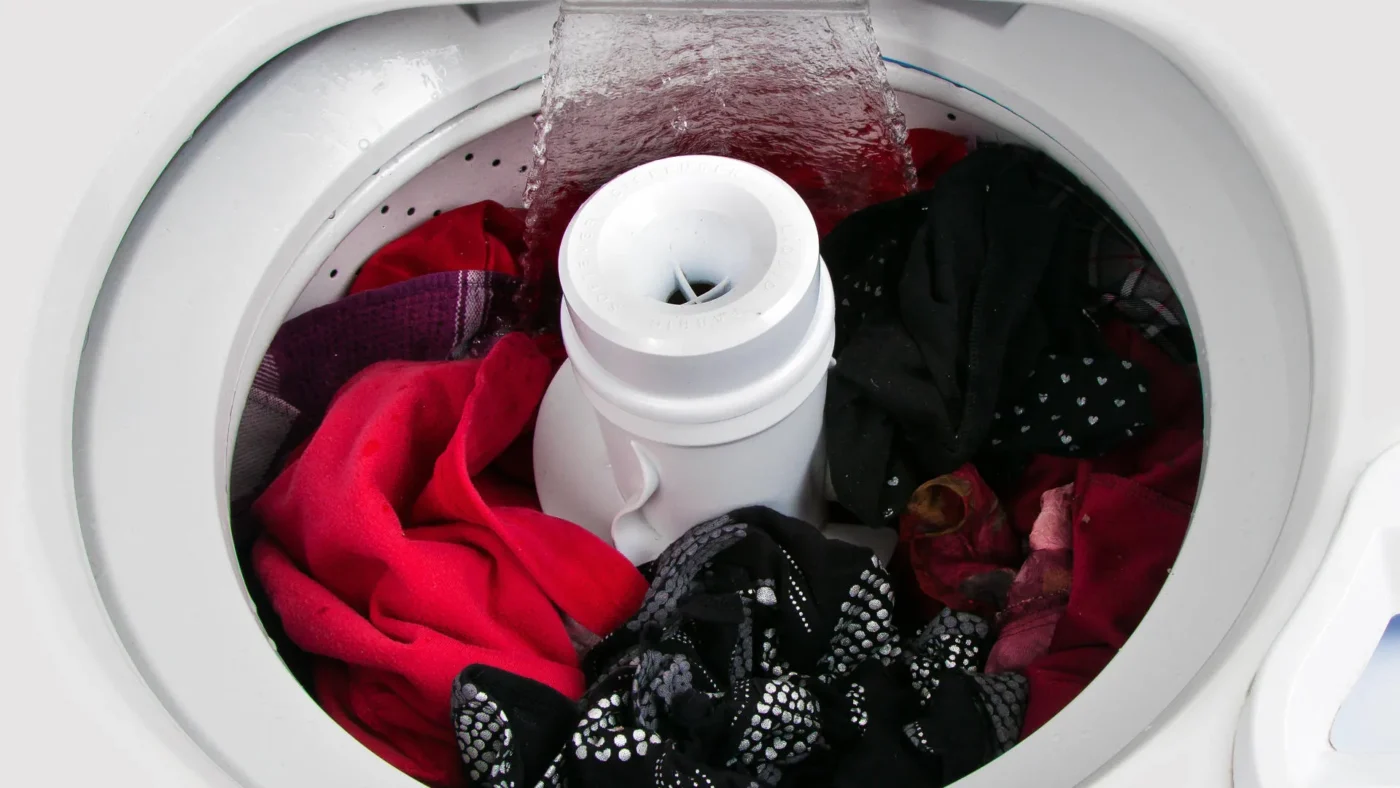
What Are Some Alternatives To Using Cold Water In The Washing Machine?
It’s no secret that saving money on your monthly utility bills is a smart way to live. In fact, many people are so intent on saving money that they will go out of their way to do so, even if it means making some small sacrifices along the way.
One such sacrifice that many people make is using cold water in the washing machine, instead of hot water. This can be a particularly painless way to save money each month, as most people don’t even think about using hot water when they do their laundry.
But is using cold water really the best way to save money on your laundry bill? Are there any alternatives that might work just as well – or even better? Let’s take a look at some of the alternatives to using cold water in the washing machine.
One popular alternative to using cold water in the washing machine is to use warm water instead. This can be especially effective if you have a lot of laundry that is particularly dirty. Warm water can help to loosen up dirt and grime, making it easier for your washing machine to get clothes clean.
If you use warm water, be sure to check the labels on your clothing before doing so. Some fabrics can shrink when exposed to warm water, so it’s always best to err on the side of caution. In general, though, using warm water instead of cold water won’t cause any problems for most people.
Another alternative to using cold water is to use hot water instead. This is obviously the opposite of using cold water, and it can be a great way to get your clothes clean – especially if they are very dirty. Hot water is also a good choice for people who have a lot of laundry to wash, as it can help to speed up the process.
However, just like with using warm water, you will want to be careful when using hot water on your clothing. Some fabrics can shrink or fade when exposed to hot water, so it’s always best to check the labels before washing. In general, though, using hot water instead of cold water won’t cause any problems for most people.
If you’re looking for an alternative to using cold water that is both effective and gentle on your clothing, you might want to consider using distilled water. This is water that has been purified, and it can be a great choice for people who have sensitive skin or allergies.
Another advantage of using distilled water is that it can help to prolong the life of your clothing. This is because distilled water doesn’t contain any minerals that can build up on your clothes over time and cause them to wear out prematurely.
Of course, one of the downsides of using distilled water is that it can be more expensive than regular tap water. However, if you’re looking for a gentle and effective alternative to using cold water, distilled water is definitely worth considering.
If you want to know how to fix this problem, this video is for you:
Frequently Asked Questions About No Cold Water In Washing Machine
How do I fix my washing machine if it doesn’t have cold water?
There are a few possible solutions: Check your home’s water heater and see if it is set to deliver cold water. If it is not, you will need to adjust the temperature or have a professional do it for you. If your washing machine is new, there may be a problem with the installation that needs to be corrected by a technician. If your machine is old, the cold water valve may need to be replaced. This is a job that can be done by a handyman or plumbing professional.
Why did my washing machine stop working suddenly?
There are a few possible reasons your washing machine stopped working suddenly: the water heater may not be set to deliver cold water, there may be a problem with the installation of your new machine, or the cold water valve on your old machine may need to be replaced. If you’re not sure what the problem is, it’s best to call a technician or plumber to diagnose and fix the issue.
Why isn’t my washing machine draining properly?
If your washing machine isn’t draining properly, there could be a clog in the drain hose. To clean the hose, detach it from the washing machine and use a plunger or plumber’s snake to clear any obstructions. If that doesn’t fix the problem, there may be an issue with the drain pump and you will need to call a technician or plumber to have it repaired or replaced.
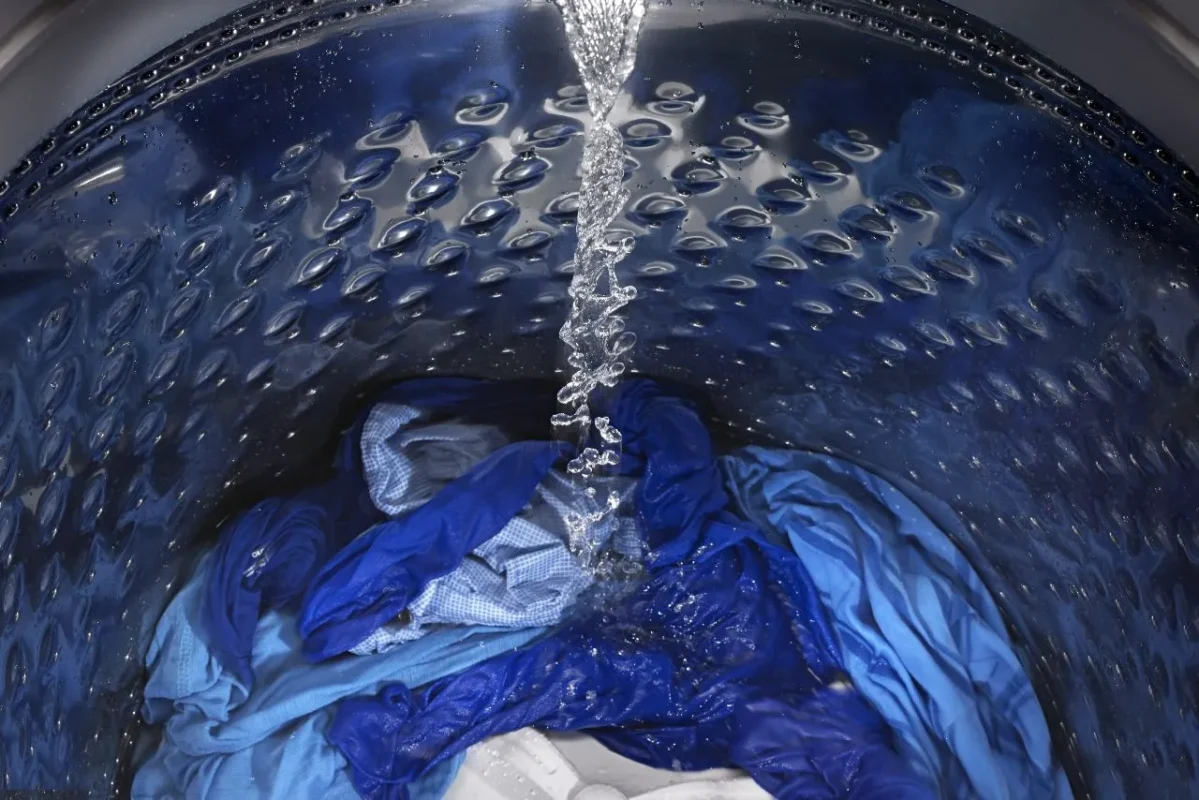
What should I do if my washing machine smells bad?
If your washing machine smells bad, there could be mold or mildew growing inside of it. To clean mold and mildew, mix equal parts water and vinegar and use a scrub brush to remove the buildup. If the problem persists, you may need to call a technician or plumber to have the machine serviced.
How often should I clean my washing machine?
You should clean your washing machine at least once a month to prevent mold, mildew, and soap scum buildup. To clean the machine, run it on an empty cycle with hot water and a cup of vinegar. You can also use a commercial washing machine cleaner according to the instructions on the bottle.
What are the most common causes of a washing machine not having cold water?
The most common causes of a washing machine not having cold water are: the water heater is not set to deliver cold water, there is a problem with the installation of the new machine, or the cold water valve on the old machine needs to be replaced.
What should I do if there is no cold water in my washing machine?
If there is no cold water in your washing machine, you may need to adjust the temperature on your water heater, or have a technician correct the installation on your new machine. If your washing machine is old, the cold water valve may need to be replaced – this is a job that can be done by a handyman or plumbing professional.
Can a washing machine still function without cold water?
Yes, a washing machine can still function without cold water. If you have an older machine, the cold water valve may need to be replaced in order to get the machine working properly again. If your machine is new, there may be a problem with the installation that needs to be corrected.
Conclusion
No cold water in washing machine? When your washing machine doesn’t have any cold water, the first thing you should do is check the fuse box. If it’s not a problem with the fuse box, then there may be something wrong with your water heater. Check to see if the pilot light is on and that there is enough gas in the tank. If everything looks good, then you may need to call a plumber to help troubleshoot the issue. In the meantime, you can try using cold water from a bucket or sink to wash your clothes.

